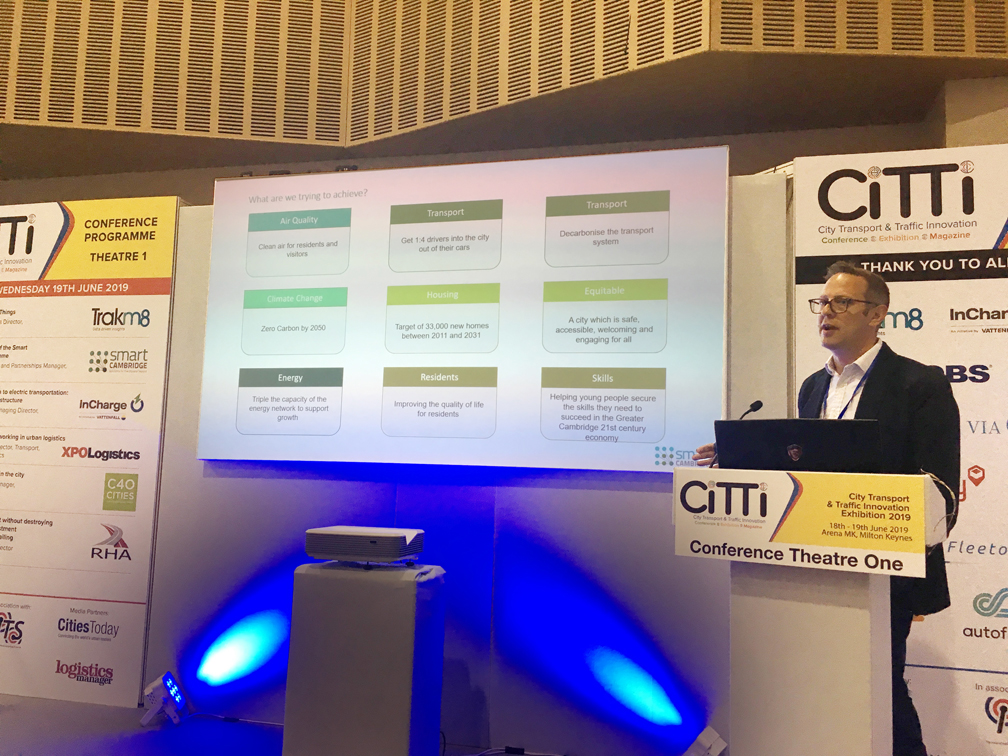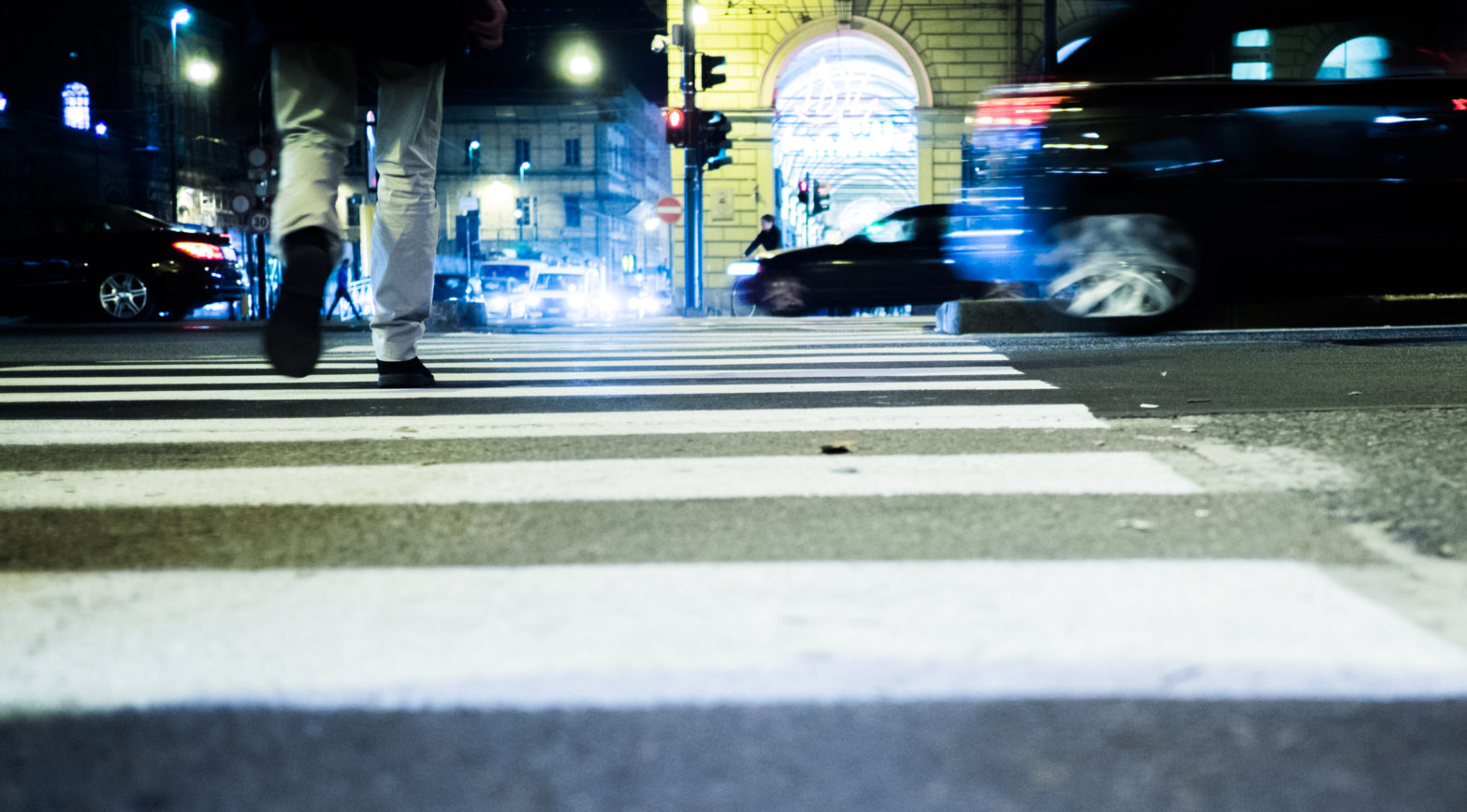
Photo: citti-cambridge-copia
Cambridge to further ‘de-carbonise’ transport
01 July 2019
by Christopher Carey
Cambridge is planning to get one in four drivers out of their cars and on to sustainable transport by 2030.
This is one of the main goals of the Greater Cambridge Partnership, a collaboration between the University of Cambridge, Cambridge City Council, Cambridgeshire County Council and South Cambridgeshire District Council.
Speaking at the 2019 City Transport and Traffic Innovation Exhibition (CiTTi), Dan Clarke, Smart Cambridge’s Smart Cities Programme Manager said: “For us, collaboration is key. We’ve built a wide range of partnerships across academia, businesses and local residents.”
Cambridge is collaborating very closely with other cities, such as Oxford, Milton Keynes, Exeter and Peterborough, and Clarke hopes to expand these collaborations further. “There is real value in learning, and seeing which concepts have been proven and can be incorporated in the city,” he added.
The Greater Cambridge Partnership, the largest of the UK government’s City Deals, works with communities, businesses and industry leaders to deliver smart projects in the city.
In 2018 the city was awarded £3.2 million of government funding from the Centre of Connected and Autonomous Vehicles (CCAV), delivered by Innovate UK, the government’s innovation agency, to develop an autonomous shuttle service as part of its public transport network.
Coventry-based engineering firm Aurrigo, the autonomous vehicle division of RDM Group, will develop up to six 12-seater self-driving shuttles to trial on the city’s bus routes while regular buses are not running. This project is due to launch next summer.
“What this means is that RDM can come to Cambridge and use us as a testbed, but we get to test whether or not autonomous vehicles can add something to the public transport system,” said Clarke. “We think they can have a role in first/last mile journeys. We’ve already got a lot of congestion here; it’s a very difficult city to move around.”
The city’s population is set to increase 28 percent by 2031, bringing in more traffic and more pollution. Clarke said the best way to tackle this it to “de-carbonise the transport system”.
Along with its autonomous vehicle plans, Cambridge has collaborated with other companies to nurture its smart projects, such as the Urban Data Project, developed by smart lighting and smart city applications specialist Telensa.
The project comprises a network of streetlight-mounted multi-sensor IoT pods that feed into Microsoft’s Azure cloud platform to create a “trust infrastructure” for urban data, which would enable Cambridge to collect, protect and use IoT data for its residents’ benefit.







